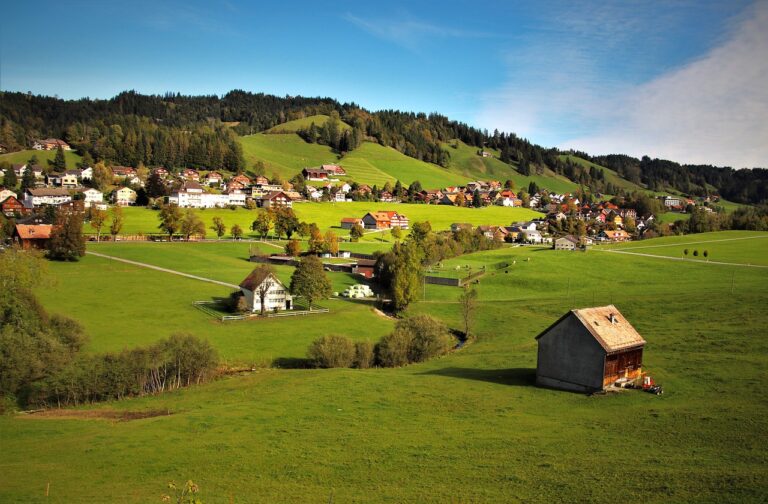What are ecovillages? We hear more and more about them. But, it is not always clear what they actually are, how they are composed, how they function.
Perhaps we have all heard of communes, which were very much in vogue in the 60s and 70s. We can say that ecovillages have taken their inspiration from communes. This is certainly an interesting aspect, but we must not make the mistake of associating ecovillages with the ‘old’ communes.
Table of Contents
What are ecovillages and what is their purpose
The birth of ecovillages is very well described by one of the leading experts on communes and ecovillages, Manuel Olivares:
“Living in small, possibly close-knit groups, in the search for inter-human harmony embedded in a broader balance with nature, is as old as mankind. Indeed, we could say that living in small groups in more or less harmonious symbiosis with the natural ecosystem is the oldest expression of human sociality. […] The city has brought a progressive loss of control of the individual over the life of the community because it has grown disproportionately before his eyes. […] In the face of this, several of those who wanted to rediscover their most authentic being could not tolerate the increasing chaos of urban dimensions, their sensory bombardment, their ‘role-playing’, and retreated, in solitude or in small groups, into the arms of the great, ancestral teacher: nature.”
The main characteristics of an ecovillage
An ecovillage can be considered a modern settlement where humans live in harmony and cooperation with nature, experimenting with new technologies and new skills to create a more sustainable, peaceful and different way of living.
A strong element characterising ecovillages is environmental sustainability; homes are designed or renovated to minimise environmental impact.
Energy is obtained from renewable sources. Efforts are made to achieve food self-sufficiency by practising various forms of sustainable agriculture. Examples are permaculture, biodynamics, synergetic agriculture, elementary cultivation, etc.
What are the differences between ecovillages and communes
Apart from these values common to all ecovillages, each is then characterised by various other aspects depending on the type of management, philosophical or religious approach, status. It is evident at this point that ecovillages are very different from communes, even though they have in common the aspect of living together.
An ecovillage tends towards sustainability and self-sufficiency, unlike a commune. In this way, it tries to satisfy as much as possible every need of its ‘inhabitants’ within the structure, from work, leisure, food to even education.
The social structure of ecovillages is based on solidarity and cooperation with activities related to ecological sustainability. They seek to encourage green building, personal growth and promote lifestyles that stimulate harmony between humans and nature.
The most common practices in ecovillages
Food self-production is practised in ecovillages; this means that they consume mainly home-grown food, cultivated with non-polluting methods. A lot of attention is also paid to energy waste, which, of course, cannot simply translate into not using electricity or turning off the light in every room.
In order to reduce energy waste, it is necessary to renovate dwellings to reduce heat loss, but also to change one’s lifestyle by favouring the use of renewable energy.
Living in an ecovillage does not mean living in deprivation but living and consuming consciously. Among other energy-saving initiatives, for example, efforts are also made to reduce transport. Often, most ecovillage members work within the ecovillage, avoiding the need to travel to their place of work.
The ecovillage is not an escape from reality but a different way of experiencing it; in a more human, sustainable, sociable way.












